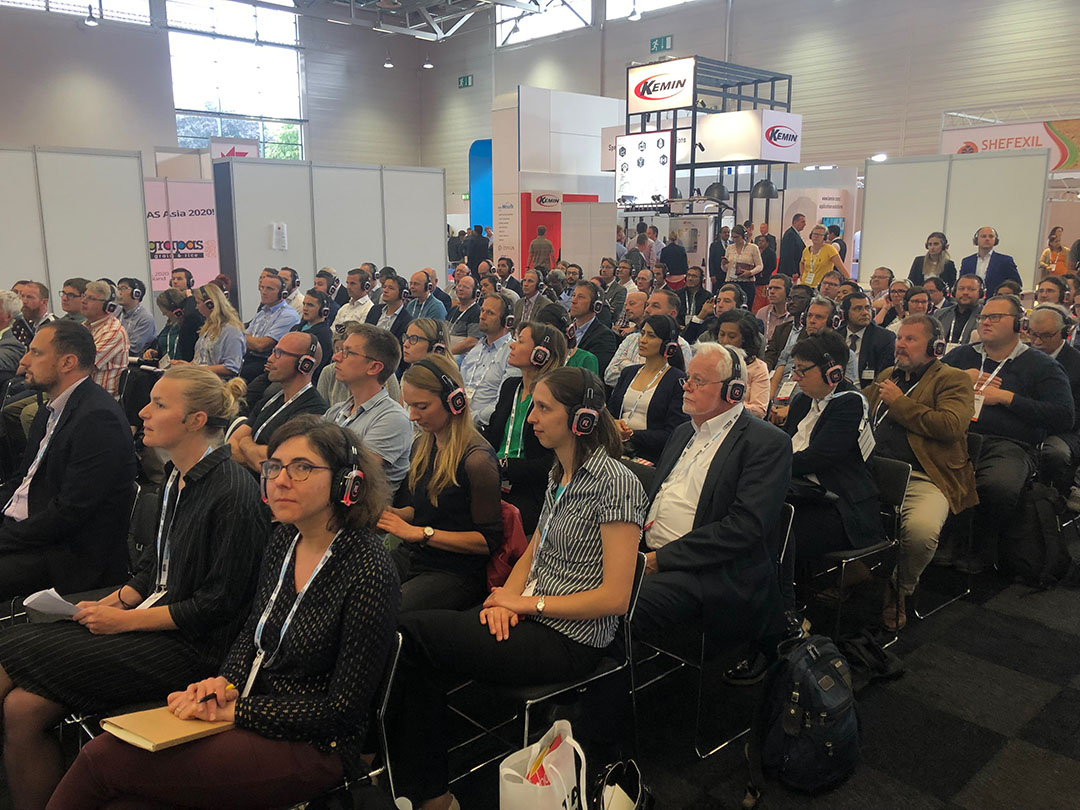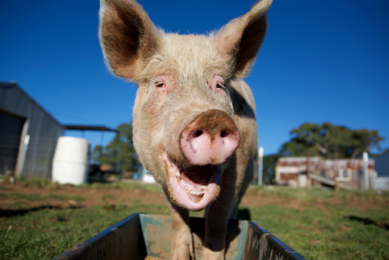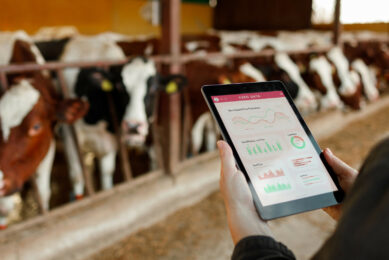Successful All About Feed seminar at Victam

The All About Feed seminar: Feed efficiency, new approaches to feed processing and formulation, attracted over 110 visitors. The seminar took place on the 1st day of Victam International, that takes place this week in Cologne, Germany.
The seminar delved into feed processing techniques and how this improves the quality of the diet and feed efficiency. The line-up for the event includes speakers from Feed Design Lab in the Netherlands (a unique company that combines research, training and trial feed production at its own test plant), animal nutrition company Phileo by Lesaffre and feed technology company Farmet. The speakers delved deeper in the different parts of the feed processing line, such as conditioning and extrusion and how this effects the feed pellet and feed efficiency.
The speakers delved deeper in the different parts of the feed processing line, such as conditioning and extrusion and how this effects the feed pellet and feed efficiency.
The presentations of the 3 speakers can be downloaded here.
Steam quality is key
Process technologist Eric Vissers from Feed Design Lab kicked off the seminar and delved into the importance of the conditioning process (the process to prepare the dry, grinded and mixed mash product for the pelleting process). “When we perform a good job in conditioning, the rest will be peanuts. But the combination of moist, temperature, retention time and pressure are key for a good conditioning process. The use of steam is important for the regulation of the temperature and to add water to the mix. But do we actually know what the quality of the steam?”, Vissers addressed. Vissers asked the audience if they or the operators working in their feed company are able to test the quality of the steam, and many attendees said no. ‘This is why we want to put more focus on the topic steam quality. At Feed Design Lab, we actively work on this by implementing sensoring in the feed equipment to better measure what is happening in the conditioner for example. The conditioner should not be a black box, but should be a piece of equipment that you have total control”, Vissers concluded.
Feed savings through extrusion
The 2nd speaker of the seminar was Michal Kaválek, R&D Project Manager at Farmet. He explained more about feed extrusion and how this can increase efficiency. “Optimum feed extrusion is important as commodity prices increase and we therefore have to optimise the feed production process. During extrusion, we push the material through a narrowed hole with a screw. Then we heat up the material by friction between a screw (or inserts) and the barrel. This in turn increases the digestibility of starch and it modifies the protein structure, so animals can better digest the feed”, Kaválek explained. With extrusion, also the antinutritive factors such as trypsin, lectins, tannins and gossypol are reduced. “At the same time, we need to be aware that extrusion can result in a loss of certain vitamins, amino acids or additives that are not thermostable”, he addressed. Trials presented by Farmet showed that the digestibility of starch increased by using extrusion, which in turn lead to savings between 4 and 14%. Trials in broilers fed extruded soybean cake and extruded full fat soy also led to feed savings.
Naturally heat stable probiotic yeast
Cécile Sampsonis, products formulation manager at Phileo by Lesaffre updated the audience on probiotic yeast that is selected to be able to withstand feed processing. In her presentation: Resistance of active ingredients to modern pelleting processes, Sampsonis explained the development of a new generation of Actisaf HR+ yeast probiotic. “The pelleting process is challenging for certain feed additives, due to the high temperatures and the friction of the feed mass for example. With the increased interest in using certain feed additives for animal health and performance, we also need to develop products that have a higher resistance to multifactorial challenges, such as found in the pelleting process. Our Actisaf HR+ yeast probiotic is a unique selected strain from Saccharomyces cerevisiae Sc 47. Through the selection and the optimisation and trials, we have created a product that has a natural resistance against Specific Mechanical Energy (SME), Specific Thermal Energy (STE) and moist, the most challenging parameters in the pelleting process”, Sampsonis concluded.











